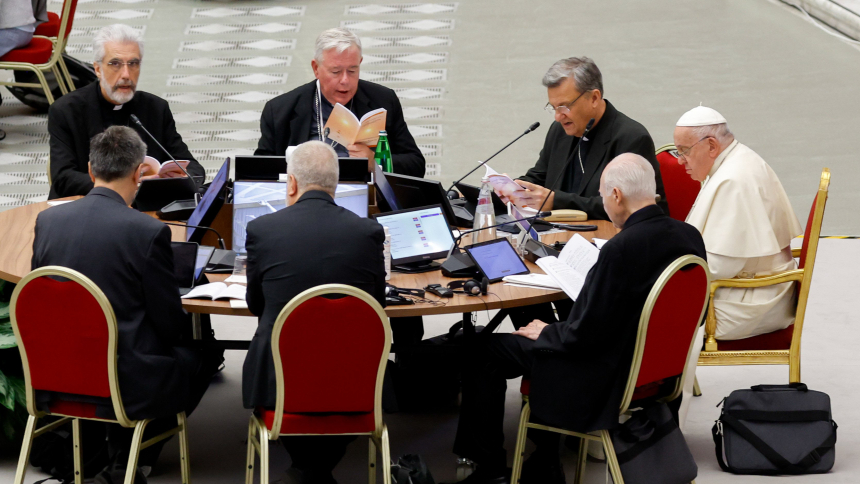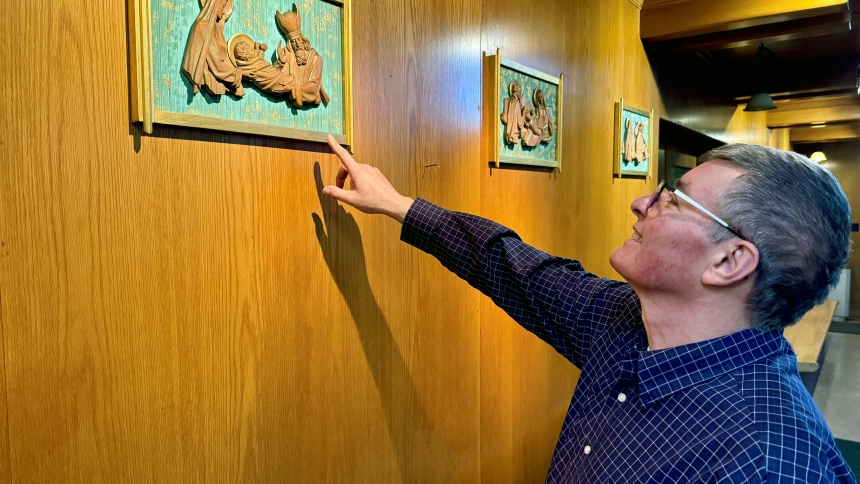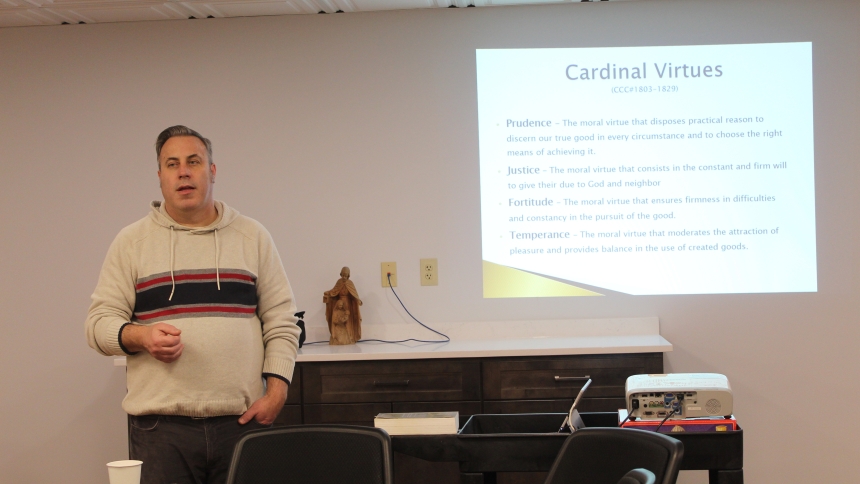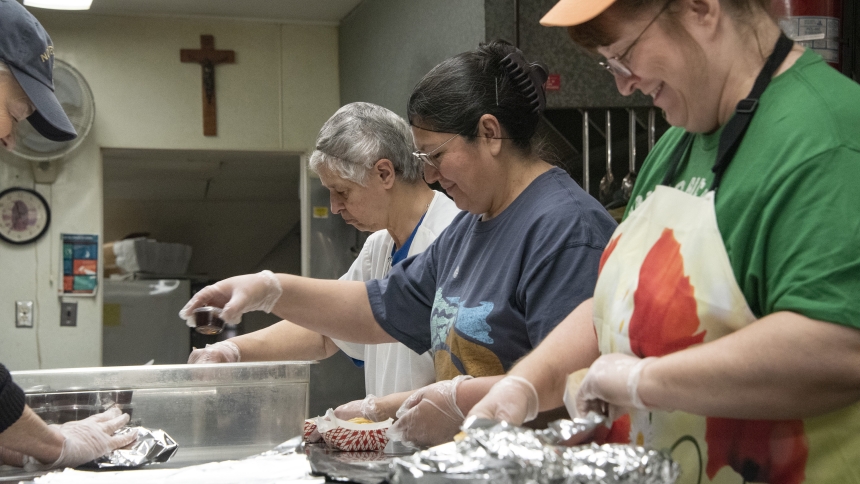
VATICAN CITY (CNS) - "The church is taking a break," Pope Francis said.
"It is a break for the whole church, as we engage in listening," he told members of the assembly of the Synod of Bishops - and journalists.
Addressing the opening working session of the assembly, the pope may have exaggerated a bit, yet for participants his words certainly rang true. For the duration of the assembly Oct. 4-29 all the heads of Vatican dicasteries and hundreds of cardinals, archbishops, bishops, religious superiors, professors, students and parents were scheduled to be away from their homes and their desks.
For Paolo Ruffini, prefect of the Dicastery for Communication, that is the "news" of the synod.
"An institution as large as the church is giving itself a moment for common discernment in silence, listening, faith and prayer," he told reporters Oct. 5.
The theme of the synod - "For a synodal church: communion, participation, mission" - covers a vast gamut of topics dealing with the very life of the church, its identity, its membership, its leadership, its outreach and its role in the world.
Journalists and others hoping to follow the synod assembly's work may be frustrated not knowing what is going on inside the Vatican's Paul VI Audience Hall where the pope, the 364 synod other members and 85 experts, facilitators and ecumenical representatives are meeting morning and afternoon Monday through Friday and Saturday mornings as well.
But Ruffini suggested the public silence is a big part of the story.
Pope Francis had told synod members at the beginning that participation required "a certain fasting from speaking in public" to "safeguard" the synod's discernment process.
In societies filled with noise and people trying to shout over each other, Ruffini said, maybe the world should draw a lesson from what the church is trying to do.
Making space for silence and for listening to others could help end wars or prompt real action to stem the climate crisis, he said, suggesting the synod's process deserved to be understood and appreciated far beyond the church.
The rules for synod members distributed to participants said, "In order to guarantee the freedom of expression of each and all regarding their thoughts and to ensure the serenity of the discernment in common, which is the main task entrusted to the Assembly, each of the Participants is bound to confidentiality and discretion regarding both their own interventions and the interventions of other Participants. This duty remains in force once the Synodal Assembly has ended."
The balance between "confidentiality" and "discretion" was not spelled out.
After the rules were distributed, some synod members canceled appointments for interviews they had made with reporters. Those most active on X, formerly Twitter, went mute or began sharing only prayers and photos of how the assembly space was laid out.
However, Cardinal Gerhard Müller, former prefect of the Dicastery for the Doctrine of the Faith, went on EWTN Oct. 5 to talk about the synod. One question in his small group, he said, was "what is the nature and substance of this synod" given that "laypeople have the same vote" as bishops, unlike at previous synods.
Although the cardinal was critical of the process before the assembly began, he told EWTN that his experience in his small group "was very good, and I have, therefore, a certain form of optimism."
Other participants were less specific, but offered their own takes on synod proceedings.
Austrian Cardinal Christoph Schönborn of Vienna tweeted Oct. 5: "The beauty of such a synod is the experience of the universal church widely sharing our challenges and our hopes."
After the small groups began making their reports to the general assembly Oct. 6, Cardinal Joseph W. Tobin of Newark, New Jersey, tweeted: "The vision of Vatican II is the shared point of reference for the Synod starting from the catholicity of the People of God. Each individual part contributes through its special gifts to the good of the other parts and of the whole Church. Please pray for the Synod’s success."
Ambushed as he left the synod for lunch the same day, Cardinal Pietro Parolin, Vatican secretary of state, said the work was going well and, "the Spirit is blowing."
As the synod moved from small group discussions to listening to reports and speeches Oct. 6, Archbishop Paul D. Etienne of Seattle said he was grateful for the pauses for silence and reflection that punctuated the morning session. But there were still a lot of speeches in many languages.
"It is a fascinating experience, I can tell you that," he said, adding that he would encourage people "to keep praying for us, to invoke the Holy Spirit upon us because that's the voice we're listening for."
Caption: Pope Francis prays in the Vatican's Paul VI Audience Hall at the beginning of a working session of the assembly of the Synod of Bishops Oct. 6, 2023. (CNS photo/Lola Gomez)



